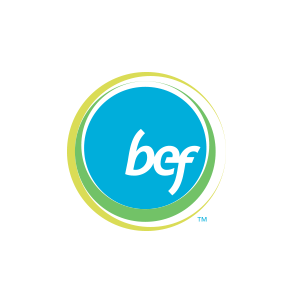BEF WRC Portfolio
Restore Flows
Securing legal agreements and partnerships to keep water in streams and rivers. Protects water to ensure environmental and social benefits.
Verification*
Bringing water back to dry creek beds for fish, wildlife and people to enjoy
Prickly Pear Creek had gone dry over the past century as a result of increased irrigation needs. Today, this project provides enough water for Prickly Pear Creek to maintain connectivity throughout the irrigation season—for the first time leaving natural flow in Prickly Pear Creek during the late summer season. The project restores approximately two river miles of additional useable habitat for fish and wildlife.
Creating essential aquatic habitat where it is needed most
The San Saba River in the Texas Hill Country is a cornerstone of the regional economy, lifestyle, and cultural identity. Water scarcity driven by more frequent and prolonged drought conditions as well as increased development have resulted in reduced streamflow. Environmental Water Transactions (EWTs), are an important conservation tool for restoring and maintaining flow in Texas rivers in the face of rising water demands and scarcity.
Investing in water restoration solutions in the midst of Utah’s most intense and severe drought
The Jordan River Flow Restoration project focuses on Environmental Water Transactions (EWTs), as an important conservation tool for restoring and maintaining flow in the Jordan River to Farmington Bay of Great Salt Lake in Utah. Water transaction efforts in this section of the Jordan River are year-round industrial and municipal water rights.
Preserving an iconic Central Oregon river for wildlife, recreation and communities
Thanks to partnerships between the Deschutes River Conservancy and local irrigation districts, new solutions have been developed to restore over 115 cubic feet per second of flow to the Middle Deschutes during the summer months. Water leasing agreements with irrigators keeps the river flowing, fostering a healthy ecosystem for people, plants and wildlife.
Restore Natural Systems
Supporting interventions to return freshwater systems to their natural function, providing cleaner, more abundant water, and improves habitat in meadows, wetlands, and rivers.
Verification*
Removing dams to restore valuable fish habitat and improve local water quality
Located just two and a half miles from Boston, in Milton, Massachusetts, Pine Tree Brook is home to a rare and beloved population of native brook trout and the last remaining population that is easily accessible to city residents. This phased project involves the removal of a series of three dams within the headwaters that will allow the trout access to high value habitat further downstream and permit them to return to the headwaters to reproduce in autumn. Additionally, this project bolsters previous downstream investments of green infrastructure upgrades aimed at cleaning up stormwater pollution, alleviating some of the impacts of urbanization, and helping to restore water quality in Pine Tree Brook.
Restoring natural hydrologic processes benefits native species and wetlands
Reservoir operations on Flat Creek historically restricted river flows during critical dry periods of the year—especially during drought periods when flows in Flat Creek were often entirely or severely depleted. Project partners, including American Rivers, are working to identify changes to reservoir management to sign
Providing critical habitat to migrating shorebirds
Through innovative practices such as the flooding, gradual drawdown of seasonal wetlands during spring, and water rights transactions, the project will provide 2,000 acres of crucial habitat for peak shorebird migration.
Improve Efficiency
Improving conservation to use water more efficiently in cities or on farms. Modernizes outdated systems to stop leaks and wasted water.
Verification*
Restoring flows for fish, wildlife and recreation in Central Oregon.
Whychus Creek tumbles down the eastern flank of the Cascade Mountains, through the City of Sisters, OR and into a deep canyon before joining the Deschutes River near Lake Billy Chinook. Irrigation water demands on Whychus Creek far exceed natural water supply and for 100 years, irrigation water withdrawals dried up the creek before it reached Sisters. Since 1999, the Deschutes River Conservancy has worked with the Three Sisters Irrigation District (TSID) and other partners to restore summer flows to Whychus Creek, providing water to support fish, wildlife and recreation.
Updating irrigation systems with modern technology provides gateway to major water savings
The Mason Lane Automated Headgate project will replace an outdated and inefficient irrigation diversion system with a modern, automated headgate system. The new headgate will allow irrigators to more precisely control the amount of water that they divert out of Oak Creek and into the Mason Lane ditch
Colorado River Indian Tribes (CRIT) Support Critical Water Security in Arizona
The CRIT have lands that stretch along 56 miles of the lower Colorado River, and the CRIT Farm is an extensive 2700 acre holding. Irrigation infrastructure on the CRIT lands is in need of upgrading, and the CRIT are implementing a number of projects including precision drip irrigation that will improve water delivery systems and a canal lining project will increase efficiency and reduce water loss.
ACR - American Carbon Registry
BFRS - BEF Flow Restoration Standard
CAR - Climate Action Reserve
CCP - The methodology used for this project aligns with the Core Carbon Principles and has been approved by the Integrity Council for the Voluntary Carbon Market
Green-e Energy® - Certified by the Center for Resource Solutions
National Fish and Wildlife Foundation - Project Verifier
Various - Applicable global standard
VCS - Verified Carbon Standard
Watercourse Engineering - Project Verifier
WREGIS Registered - WREGIS Registered
Schedule a custom consultation with Heather today.


